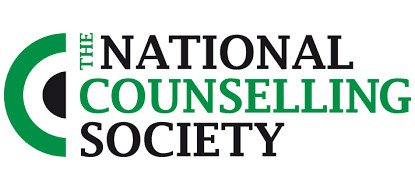I can't afford counselling
/The following was written by Shelley Holland.
So you want to see a therapist, but you are worried you can’t afford it? Your bank balance is firmly saying ‘no’, ‘absolutely not’, and ‘there’s no way you can do this’? How do you get around such compelling evidence that spending money on therapy might be a foolhardy thing to do?
Money worries can clearly be very real. Redundancy, job loss, and part-time working is a reality. And there is a direct link between times of global economic crises and the levels of depression, loneliness and even suicidal feelings that people experience trying to manage their finances in a changing and insecure world.
What is the meaning of money?
Just for a moment, let’s consider the meaning of money in your life?
For most people money is more than a means to pay your way. Most of us use money to make ourselves feel better or to fill a void in our emotional life. You might recognise this if you are someone who does a spot of internet shopping when you’re feeling lonely or bored, or someone who feels the need to treat themselves when feeling low, or do you worry about spending anything for fear you will run out of money when really there is enough sitting in a savings account?
Money and your upbringing
All of us were brought up in families where money was used in a particular way and where there was a particular ‘attitude’ to money. In some families it may be more important to maintain a good lifestyle than it is to stay out of debt. For other families it may be more important to never owe anything than to pay for necessary items.
We all grew up with different attitudes towards money. Our upbringing affects how we view our finances, and ultimately what we feel we can and can't afford.
What happened in your family? Did you grow up in a household where there was an attitude of plenty, or the feeling that everything (money, food, love) was scarce? If it was the latter you may actually have sufficient for your needs, but the anxiety that you might not or that it might all disappear and never come back can bring on such intense feelings of anxiety that you find yourself overwhelmed and increasingly risk adverse. And this can prevents you from seeking the help you need….or getting the roof fixed, or replacing a worn out pair of shoes, for example.
Can you afford counselling?
Only you can decide how much of your feeling that you ‘can’t afford it’ (whatever ‘it’ is that you are wanting to buy) is because there is no money in the bank or because it feels like there’s no money in the bank. Ever wondered how some people seem to manage their money and some people don’t? This isn’t about being ‘good’ or ‘bad’ with money, but perhaps has more to do with our relationship with money.
Whatever the reason there are some ways of getting the help you need for less. Here are some ideas:
- Short-term counselling may be available through schools, colleges and employers free of charge.
- You can usually access free counselling through your Doctor.
- If you are on a low-wage and can afford to pay something there are reduced cost schemes available within a number of local therapy charities.
There will be a waiting list for these services, and most may be limited to 5 or 10 sessions, but they will be free to use. If you can afford the reduced cost schemes you may be able to get up to 12 months of weekly counselling.
If you seek private counselling and psychotherapy there is usually no waiting time and no limit to the number of sessions you can have, so it does become possible to work on long-standing or deep-rooted issues more readily. Prices are typically between £35 and £50 per session, and attending weekly is by far the best way to ensure that the process is as effective as possible.
Other options if you can't afford weekly counselling
If weekly sessions feel like too much of a financial stretch then do discuss this with your counsellor or psychotherapist. It can be more effective to attend weekly sessions for a limited period of time rather than trying to spread the sessions out over a longer time frame. It is always best to be open to having an honest conversation with your therapist about these matters, and negotiating something that will work between you.
An alternative is to seek out group therapy, where groups of up to about 8 people meet on a weekly basis with a group psychotherapist. This can often be the cheapest way to receive therapy.
Find out more from Shelley Holland.





